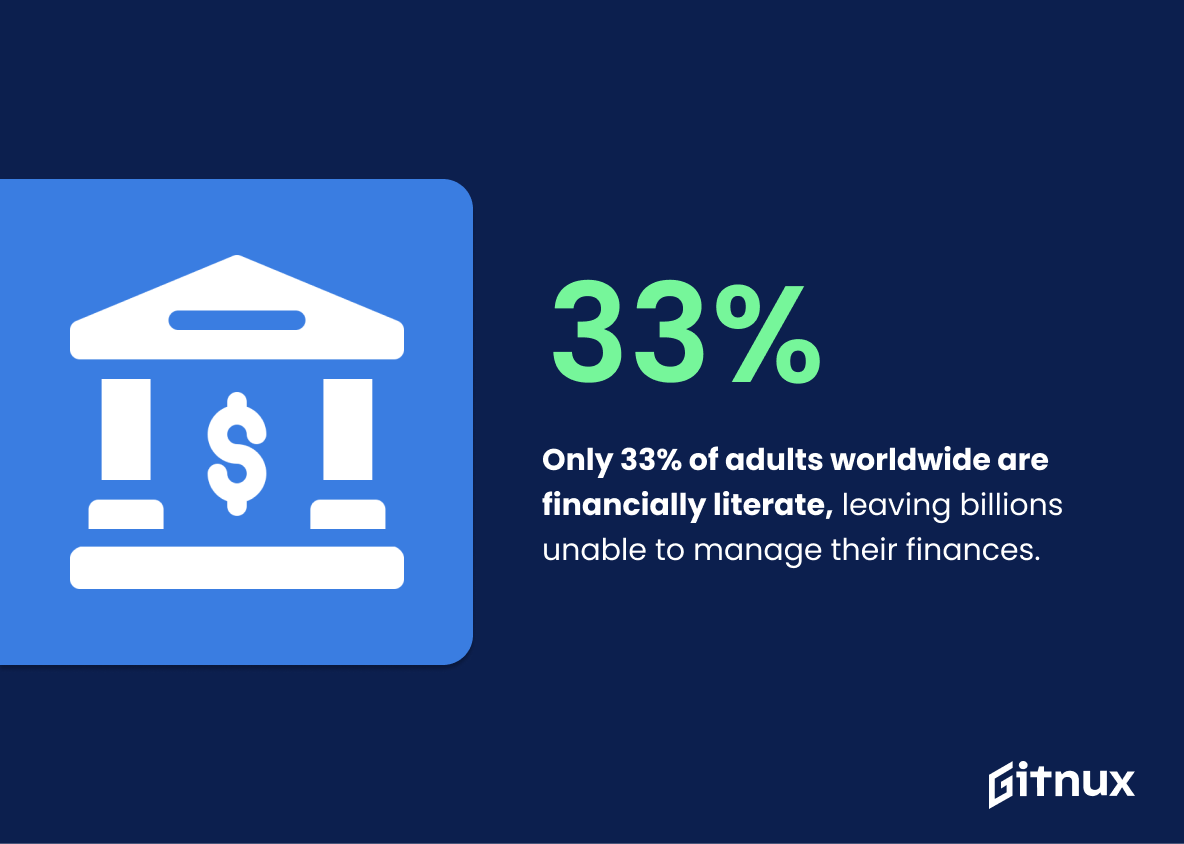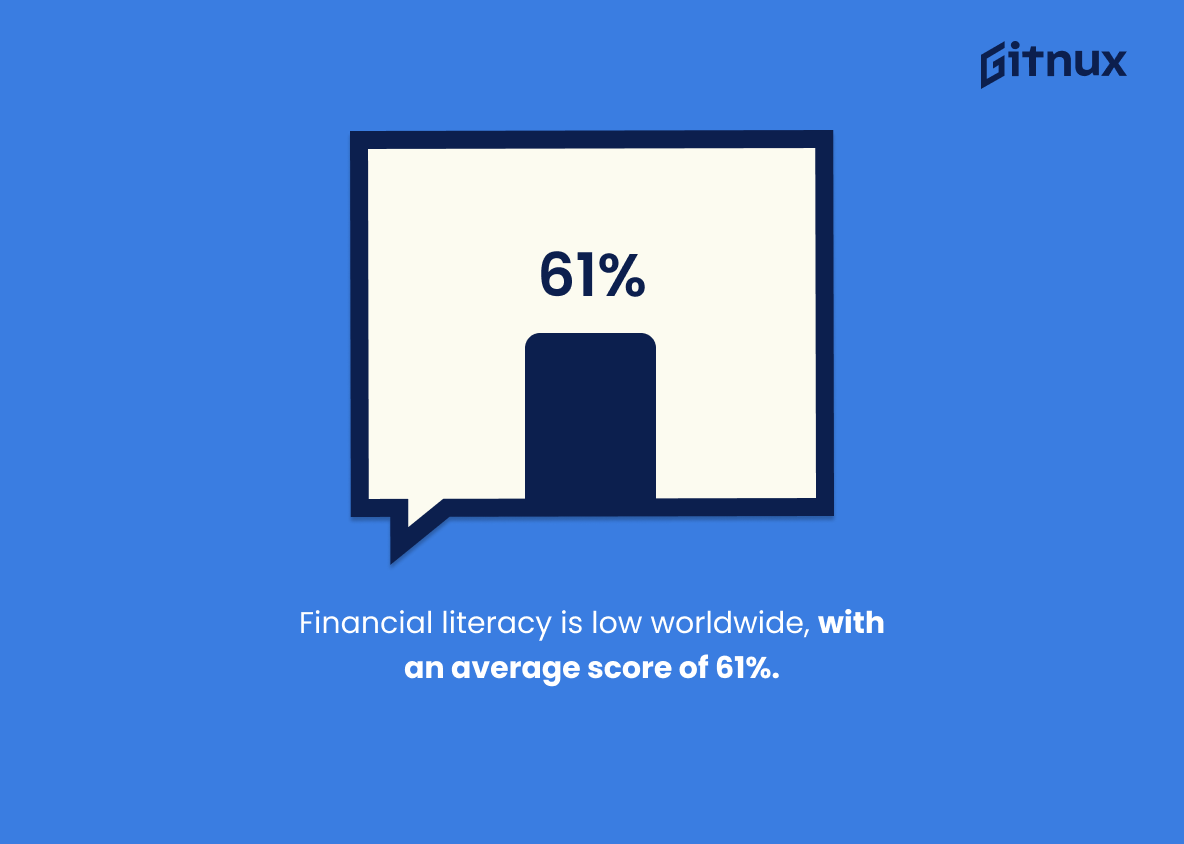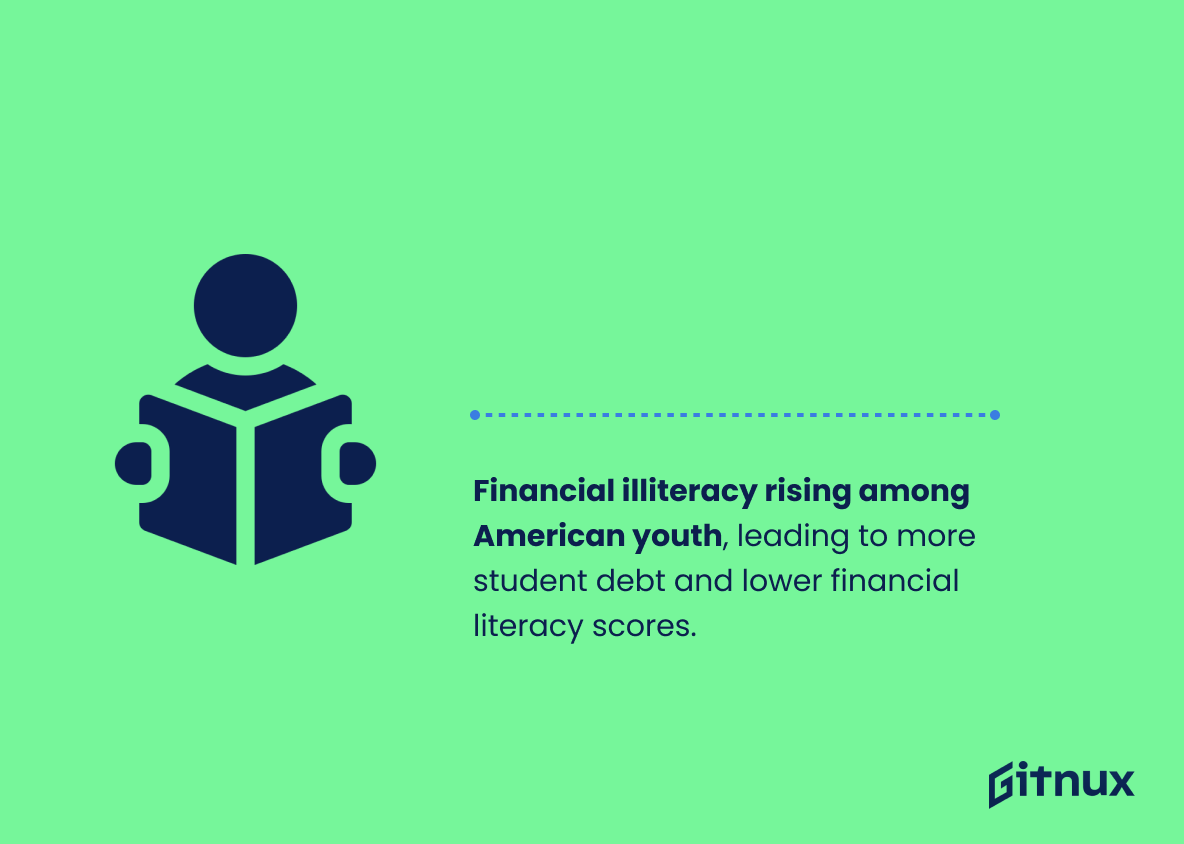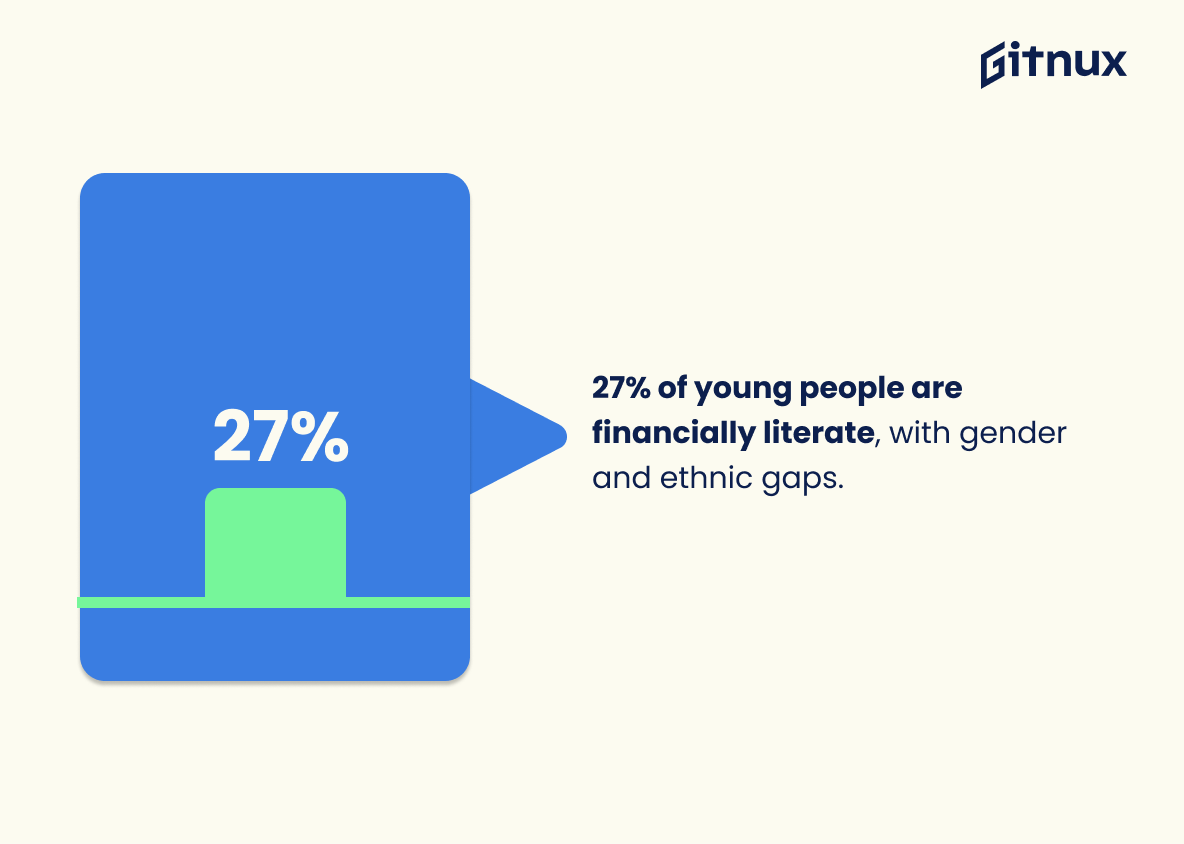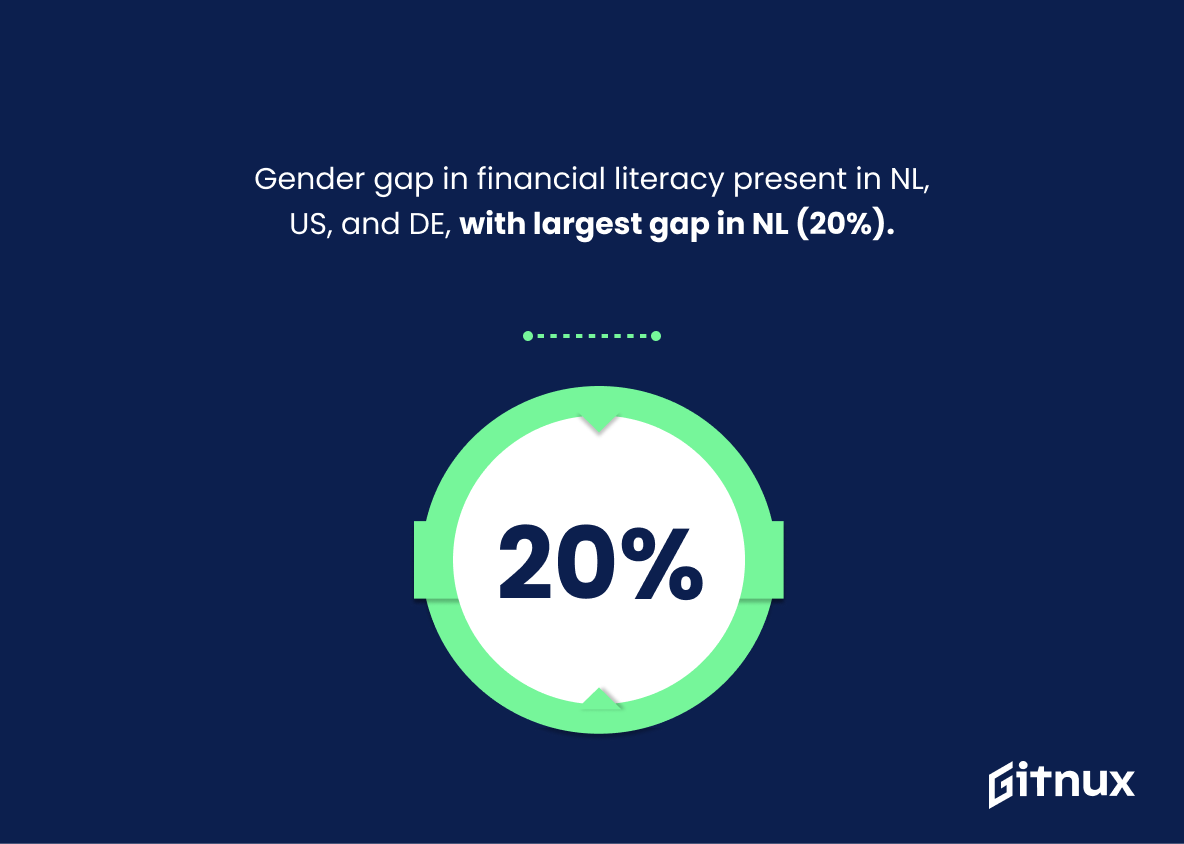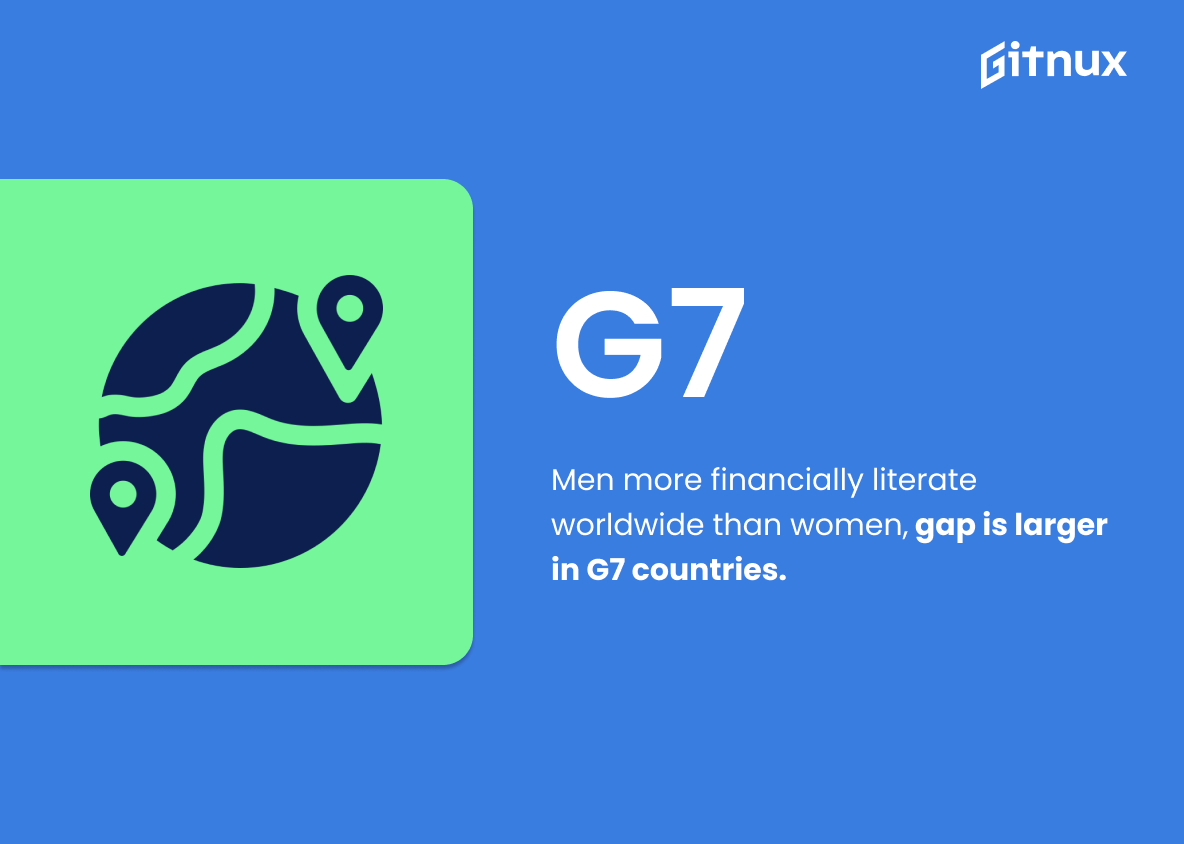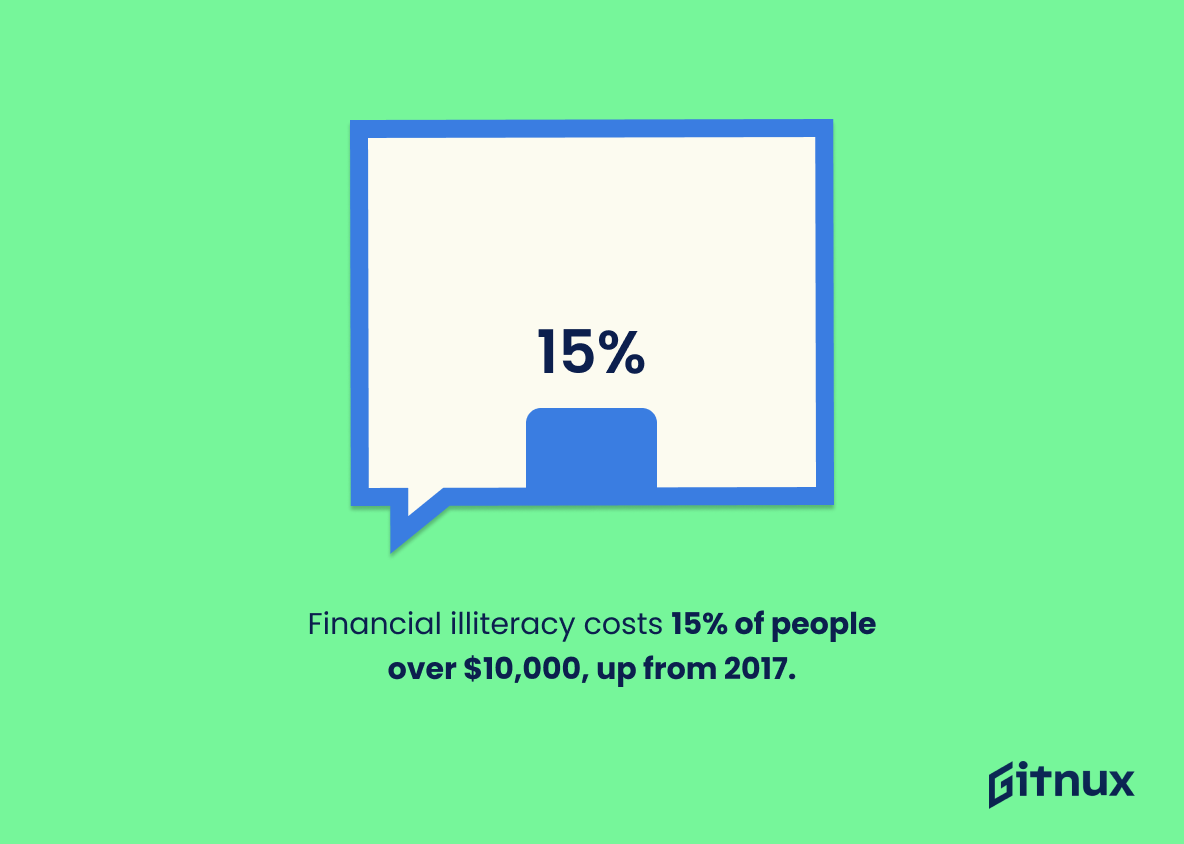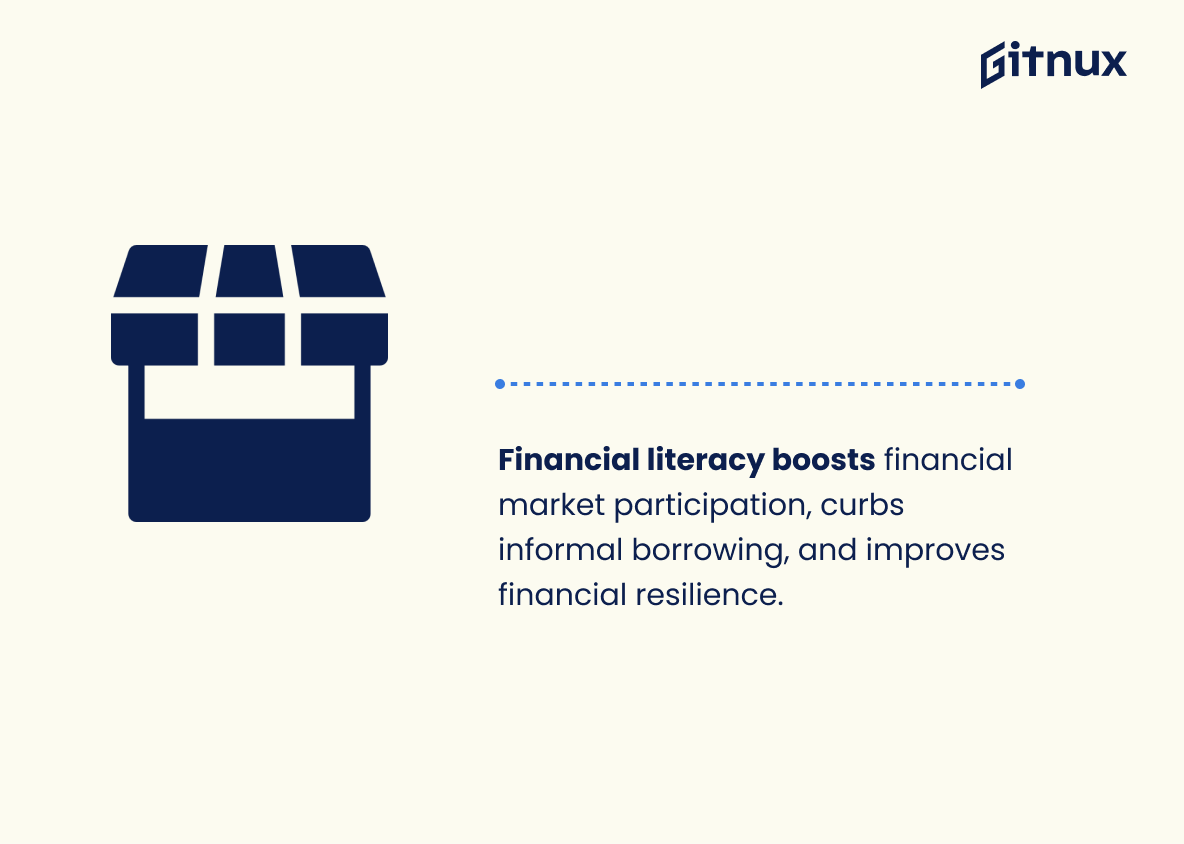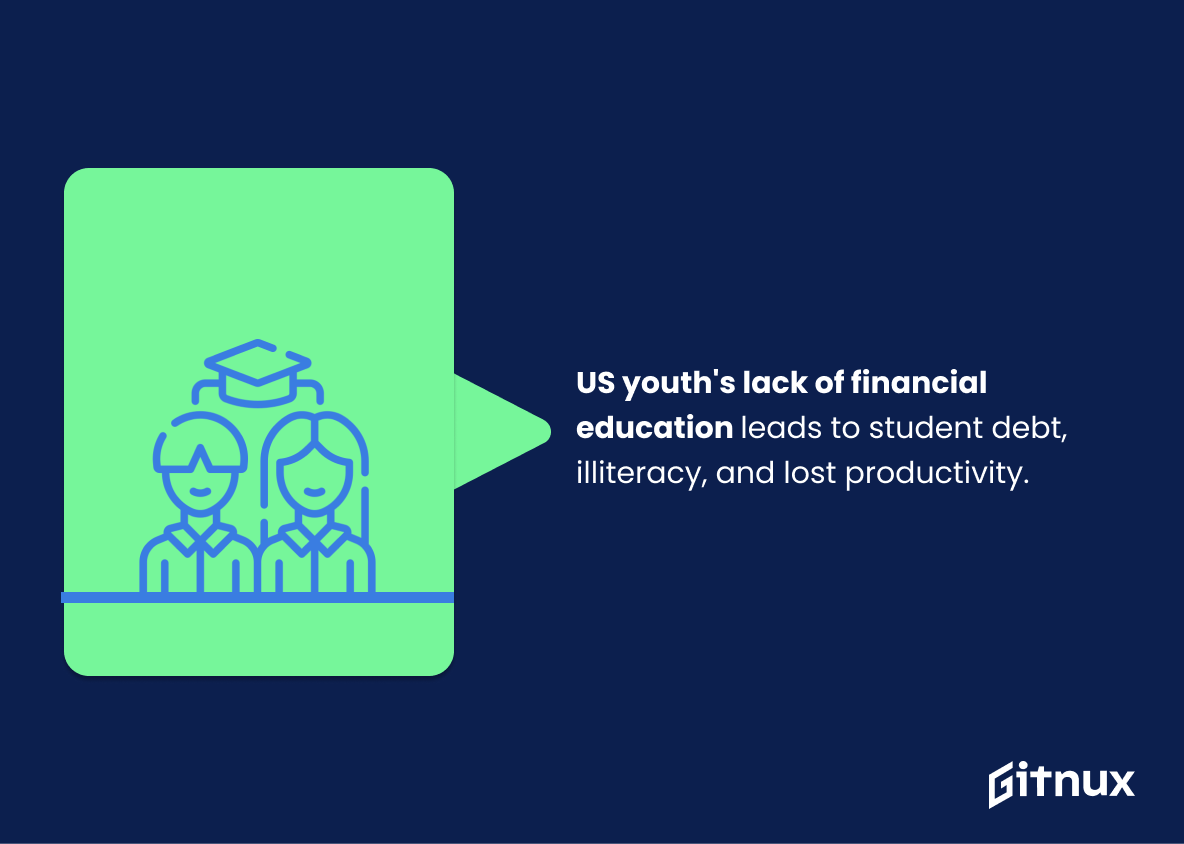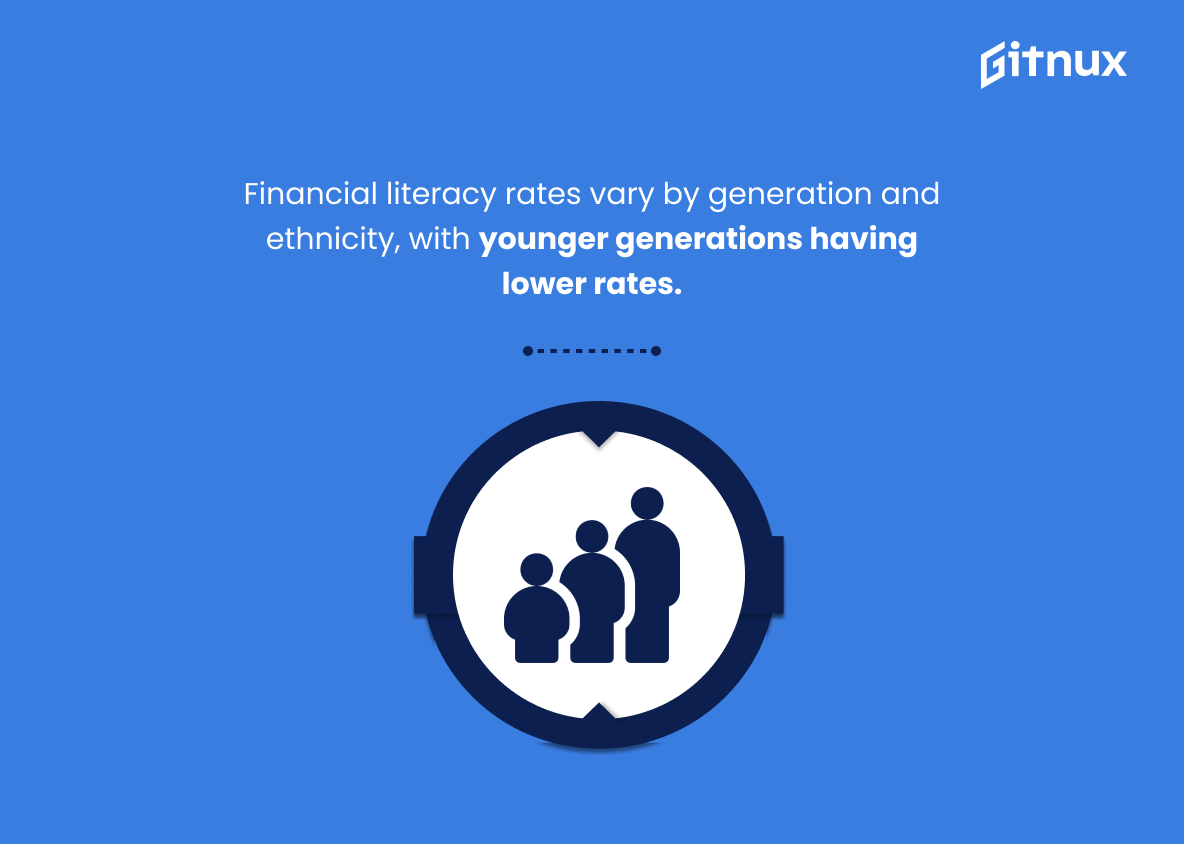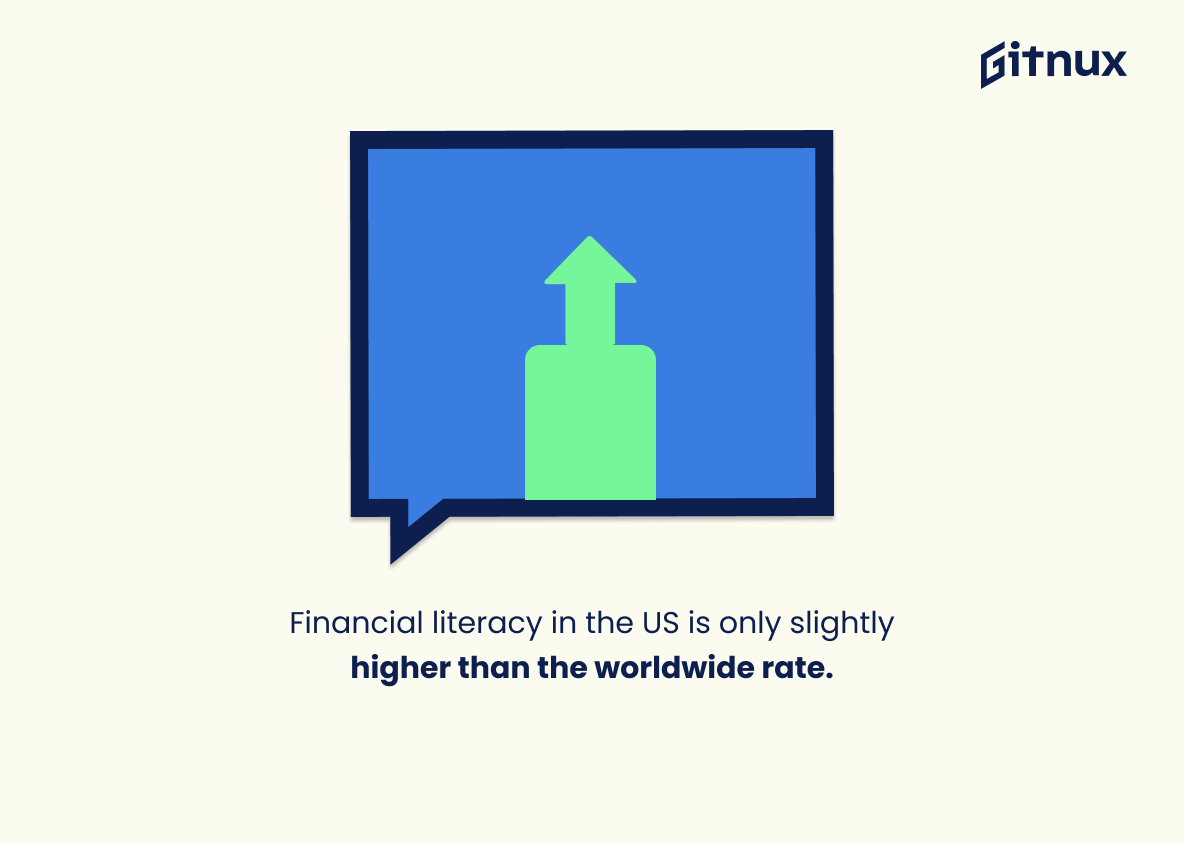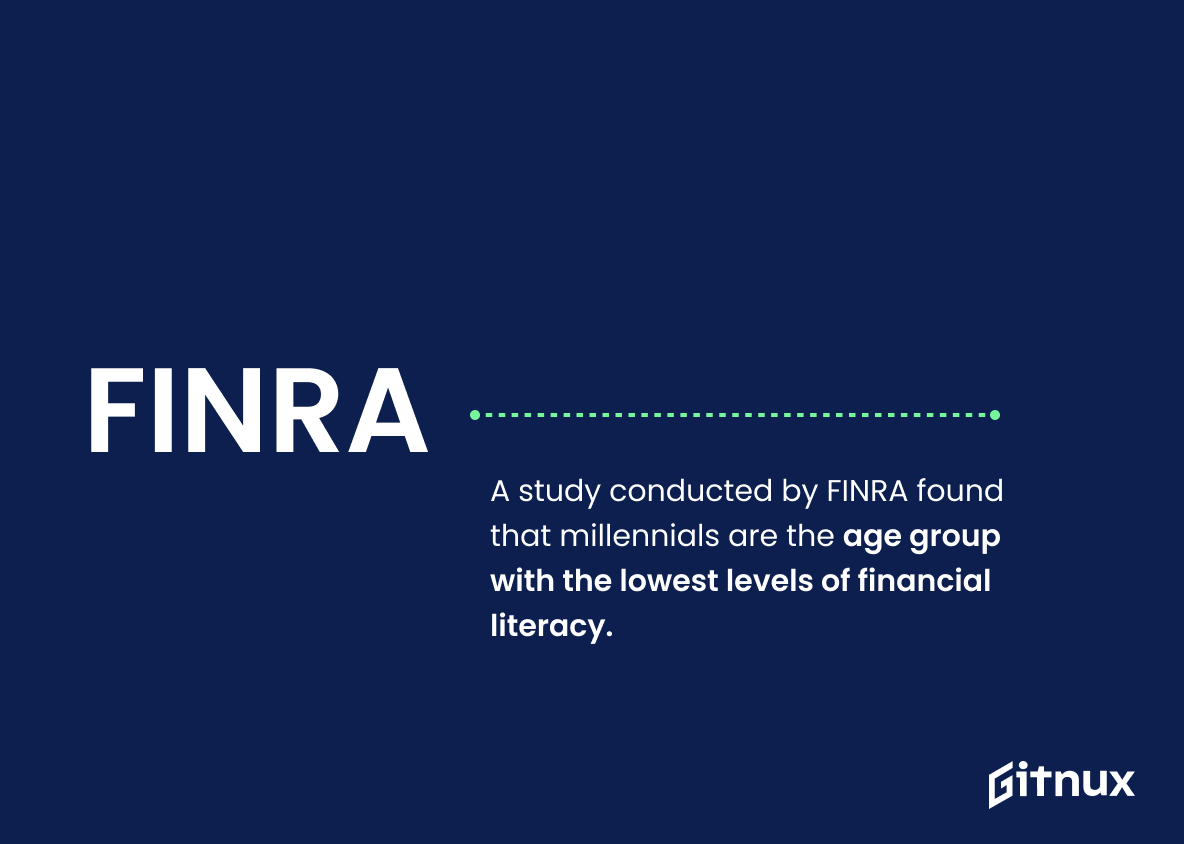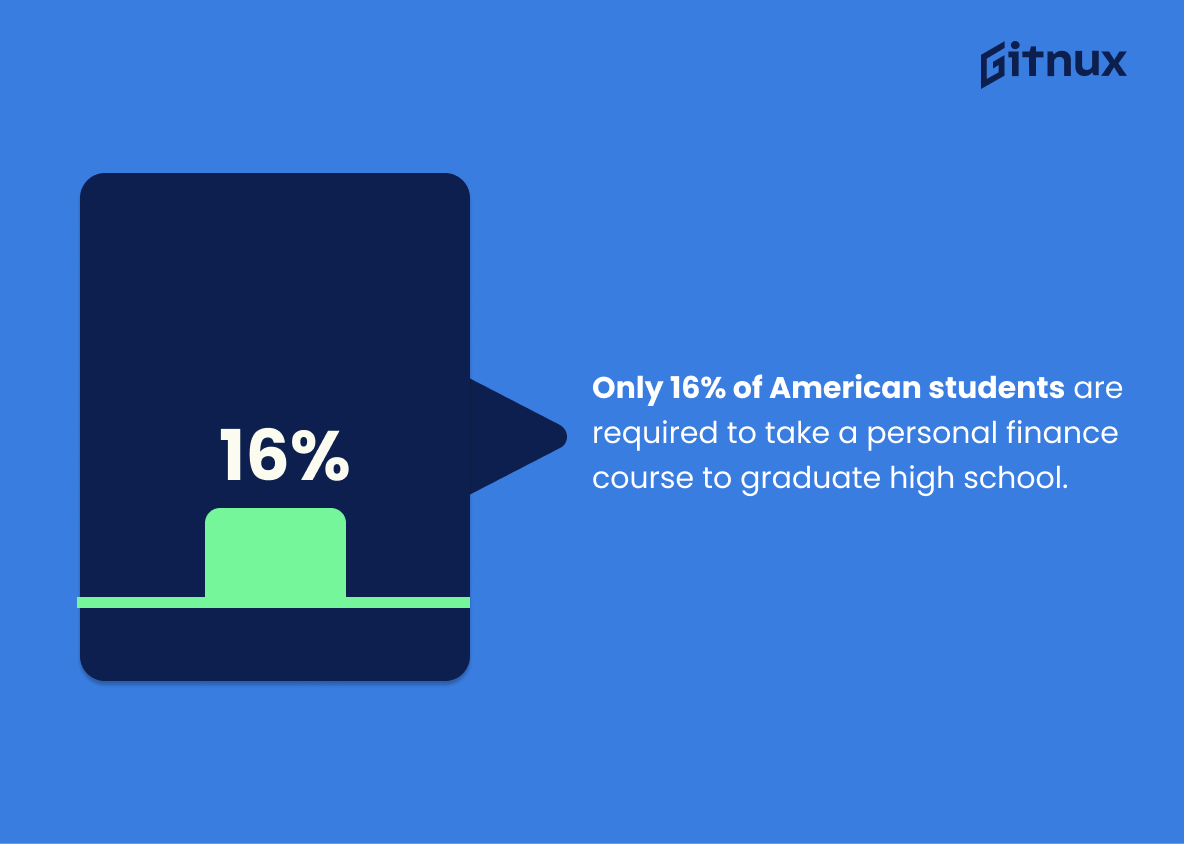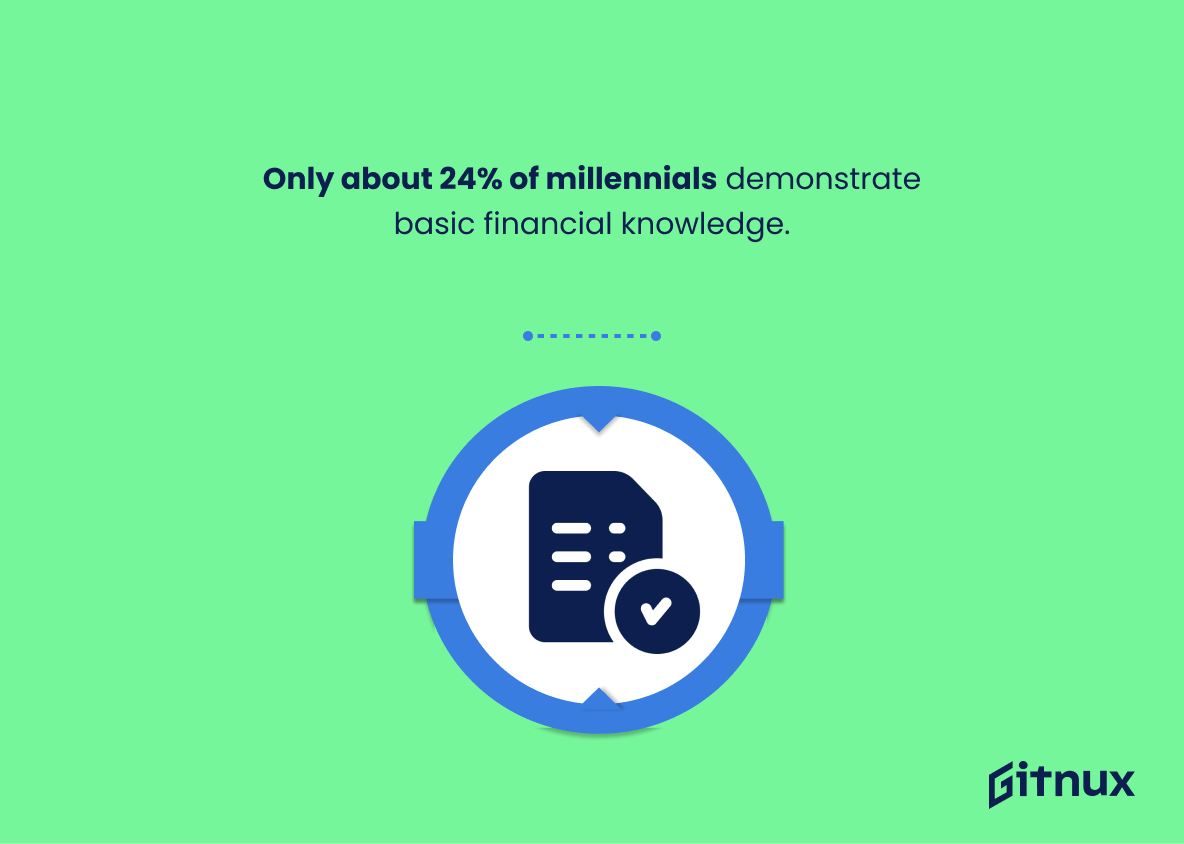Financial literacy is an important part of our lives, yet many of us are not aware of the statistics surrounding it. In this blog post, we will take a look at the current financial literacy statistics in the United States and explore how they can be improved.
We will also discuss the implications of financial illiteracy and the steps that can be taken to increase financial literacy. Finally, we will look at the benefits of financial literacy and how it can help individuals and families achieve financial security.
Financial Illiteracy: The Most Important Statistics
27% of young people possess knowledge of basic financial concepts, with large gender and ethnic disparities in financial literacy.
Young people in the US are making long-term financial decisions with little formal education, resulting in increasing student debt and financial illiteracy. This is preventing them from becoming financially independent and costing employers $180 billion in lost productivity.
Financial Illiteracy: Statistics Overview
Only 33% of adults worldwide are financially literate, meaning 3.5 billion adults globally lack understanding of basic financial concepts, suggesting deep disparities in financial knowledge around the world.
This highlights the need for more financial education and literacy programs to help people understand basic financial concepts, which can help them make better financial decisions and improve their overall financial wellbeing.
Financial literacy is low worldwide, with an average score of 61% on a test measuring basic financial knowledge concepts.
This suggests that many individuals lack the knowledge and skills to make informed financial decisions, which can lead to financial instability and insecurity.
Financial illiteracy amongst American Youth is increasing, leading to a 58% increase in student debt between 1999 and 2009 and a median score of 55.56% on tests measuring financial literacy.
This highlights the need for greater financial literacy amongst young people to ensure they are making informed decisions about their finances.
27% of young people possess knowledge of basic financial concepts, with large gender and ethnic disparities in financial literacy.
This highlights the need for more education on financial management topics, particularly for minority groups, in order to reduce the financial illiteracy rate.
The gender gap in financial literacy is present in the Netherlands, the United States, and Germany, with the largest gap in the Netherlands at 20%.
This highlights the need for more education and resources to help close the gender gap in financial literacy, especially among young people.
The gender gap in financial literacy persists worldwide, with men being more financially literate than women at 35% to 30%, respectively. This gap is greater in G7 countries at 8%, and smaller in developing countries at 5%.
This demonstrates the prevalence of financial illiteracy, particularly among women, and highlights the need for improved access to financial education and resources.
The share of people who are losing over $10,000 due to financial illiteracy is at an all-time high of 15%, and has been steadily increasing since 2017.
Financial illiteracy is becoming more and more prevalent, and is costing people more and more money. This highlights the importance of financial literacy and the need for people to be educated about financial matters.
Financial literacy is positively related to participation in financial markets and negatively related to the use of informal sources of borrowing in Russia, which has a significant impact on an individual’s spending capacity, saving capability, and likelihood of experiencing an income shock.
This shows the importance of financial literacy in order to make sound financial decisions and protect oneself from financial hardship.
Young people in the US are making long-term financial decisions with little formal education, resulting in increasing student debt and financial illiteracy. This is preventing them from becoming financially independent and costing employers $180 billion in lost productivity.
This highlights the need for more education and resources to help young people make informed financial decisions.
Without these resources, they are more likely to struggle with debt and financial illiteracy, which can have long-term consequences for their financial independence and the economy as a whole.
The average financial literacy rates among different generations and ethnicities tend to vary, with Gen Z and Gen Y having lower rates than Baby Boomers and the Silent Generation. Those with very low levels of financial literacy are more likely to have financial struggles than those with very high levels.
This demonstrates the importance of financial literacy and the need to increase financial literacy rates among different generations and ethnicities. This can help to reduce financial struggles and improve financial security.
Approximately two-thirds (66%) of Americans can’t pass a basic financial literacy test.
This highlights the need for greater financial education and resources to help people understand and manage their finances. It also serves as a warning that without proper financial literacy, individuals may be at risk of making costly mistakes that could have long-term consequences.
About 57% of adults in the United States are financially literate, which is only slightly higher than the worldwide rate of 56%.
Despite the fact that the US rate of financial literacy is only slightly higher than the worldwide rate, it is still concerning that nearly half of adults in the US lack the necessary knowledge to make sound financial decisions.
A study conducted by FINRA found that millennials are the age group with the lowest levels of financial literacy.
This highlights the need for more education and resources to be made available to this age group in order to ensure that they are equipped with the knowledge and skills necessary to make sound financial decisions.
Only 16% of American students are required to take a personal finance course to graduate high school.
With only 16% of American students required to take a personal finance course to graduate high school, it is clear that the majority of young people are not receiving the necessary knowledge to make informed financial decisions. This lack of financial literacy can have serious consequences, as it can lead to poor money management and even financial ruin.
Only about 24% of millennials demonstrate basic financial knowledge.
This serves as a warning to those who may be relying on millennials to make sound financial decisions, as only a quarter of them have the necessary knowledge to do so.
Roughly 72% of American adults have confidence in their ability to manage their finances, but only 47% feel they are financially stable.
Although many people have confidence in their ability to manage their finances, they still lack the knowledge and resources to be financially stable. This highlights the need for more education and resources to help people become more financially literate and secure.
People with a higher level of financial literacy are twice as likely to plan for retirement.
Those with a higher level of financial literacy are more likely to plan for their retirement, which is a crucial step in ensuring a secure financial future. This statistic serves as a reminder that financial literacy is not only important for day-to-day financial decisions, but also for long-term financial planning.
33% of adults in Latin America are financially literate compared to 55% of adults in East Asia and the Pacific.
This highlights the need for greater financial education in Latin America, as well as the potential for improvement in the region. This is especially pertinent in a blog post about Financial Illiteracy Statistics, as it serves to illustrate the disparities in financial literacy between different regions of the world.
53% of U.S. adults reported feeling anxious about their financial situation at least once in the past 12 months.
This statistic is a stark reminder of the prevalence of financial anxiety among U.S. adults.
According to a 2021 FAIRWIND Credit Union survey, only 6% of US adults can correctly answer 7 out of 10 questions regarding basic financial concepts.
Only a small fraction of adults are able to answer even basic questions about financial concepts, indicating that the majority of Americans lack the knowledge and understanding necessary to make sound financial decisions.
Only 54% of American adults pay their credit card bills in full each month, a crucial aspect of financial literacy.
A large portion of American adults are not taking the necessary steps to ensure their financial stability, such as paying off their credit card bills in full each month. This lack of financial literacy can have serious consequences, such as accumulating debt and damaging credit scores.
More than 42% of Americans report that they are uncomfortable discussing personal finance with friends and family.
A large portion of the population is not comfortable discussing personal finance with those closest to them, which could be indicative of a lack of knowledge or understanding of the subject. This could be a sign that financial literacy is not being adequately addressed in the country, and that more needs to be done to ensure that people are equipped with the necessary skills to make sound financial decisions.
Financially literate adults are less likely to engage in costly credit behaviors, saving roughly $184 annually in credit card fees.
Those who are financially literate are able to save money by avoiding costly credit behaviors, which can add up to a significant amount over the course of a year. This highlights the need for more education and resources to help people become more financially literate, so that they can make better decisions and save money in the long run.
Four in ten U.S. households (39%) have no retirement savings.
A large portion of households are not adequately preparing for retirement, which could lead to a difficult financial situation in the future. This statistic is a call to action for individuals to become more financially literate and to start planning for their retirement.
Almost 40% of Americans do not understand the difference between debit and credit cards.
There is a need for more education and resources to help Americans understand the difference between debit and credit cards, and how to use them responsibly. It also serves as a warning that many people may be at risk of making costly financial mistakes due to their lack of knowledge.
Younger millennials (ages 23 to 27) have relatively lower financial wellness scores, with an average score of 69 out of 100.
With an average score of 69 out of 100, it is clear that many of them are not equipped with the necessary knowledge and skills to manage their finances. This is a concerning issue that needs to be addressed in order to ensure that millennials are able to make sound financial decisions and achieve financial stability.
Conclusion
In conclusion, financial illiteracy is a serious problem in the United States. The statistics show that a large portion of the population lacks basic financial knowledge, and this lack of knowledge can have serious consequences. It is important to educate people about financial literacy so that they can make informed decisions about their finances.
Financial literacy programs can help people understand how to manage their money and make sound financial decisions. With the right education and resources, people can become financially literate and make better decisions about their finances.
References
1 – https://gflec.org/wp-content/uploads/2015/11/3313-Finlit_Report_FINAL-5.11.16.pdf
2 – https://www.oecd.org/financial/education/oecd-infe-2020-international-survey-of-adult-financial-literacy.pdf
3 – file:///C:/Users/Vivien/Downloads/rutgers-lib-39568_PDF-1.pdf
4 – https://www.nber.org/system/files/working_papers/w15352/w15352.pdf
5 – https://www.nber.org/system/files/working_papers/w20793/w20793.pdf
6 – https://gflec.org/wp-content/uploads/2017/07/The-Gender-Gap-in-Financial-Literacy-A-Global-Perspective-Report.pdf
7 – https://www.financialeducatorscouncil.org/financial-illiteracy-costs/
8 – https://gflec.org/wp-content/uploads/2019/07/1-s2.0-S0378426613002847-main.pdf
9 – https://scholarworks.uni.edu/hpt/288/
10 – https://gflec.org/wp-content/uploads/2022/04/TIAA-Institute-GFLEC-2022-Personal-Finance-P-Fin-Index.pdf
11 – https://www.usfinancialcapability.org
12 – https://www.businesswire.com
13 – https://www.prnewswire.com
14 – https://www.spglobal.com
15 – https://gflec.org
16 – https://www.nfcc.org
17 – https://councilforeconed.org
18 – https://www.finrafoundation.org
19 – https://www.thetaskforce.org
20 – https://www.gobankingrates.com
21 – https://globalfindex.worldbank.org
22 – https://www.apa.org
23 – https://info.skills.fund
